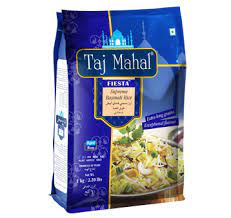 Happy holidays to all our readers! After another eventful week on the blog, we are here with our weekly reviews summarizing the 5 posts covered on the blog along with 19 case summaries and other national and international IP developments.
Happy holidays to all our readers! After another eventful week on the blog, we are here with our weekly reviews summarizing the 5 posts covered on the blog along with 19 case summaries and other national and international IP developments.
Highlights of the Week
IP Reveries: Class 5.2 – Interrogating India’s Drug Regulation System
Prof. Antilegend and his class are back! This time the discussion ventures further into the Indian drug regulatory system and the class learns more about ‘new drugs’, the standard practice followed by Indian authorities and the deterrents prescribed within the system for supplying untested drugs. Prof. Antilegend explains the meaning of ‘new drugs’ and discusses the lacuna regarding obtaining approvals on the basis of bioequivalence and bioavailability tests. They then highlight how despite regulatory changes, ‘untested drugs’ i.e. drugs who haven’t undergone the necessary clinical trials, are still available in the market. The discussion then focuses on the inadequate mechanisms in place to check a manufacturer for supplying harmful drugs in the market.
drug regulatory system and the class learns more about ‘new drugs’, the standard practice followed by Indian authorities and the deterrents prescribed within the system for supplying untested drugs. Prof. Antilegend explains the meaning of ‘new drugs’ and discusses the lacuna regarding obtaining approvals on the basis of bioequivalence and bioavailability tests. They then highlight how despite regulatory changes, ‘untested drugs’ i.e. drugs who haven’t undergone the necessary clinical trials, are still available in the market. The discussion then focuses on the inadequate mechanisms in place to check a manufacturer for supplying harmful drugs in the market.
Gone With the Wind: Where to Find the Repository of IPAB Orders?
 Our intern Gaurangi highlights Delhi High Court’s recent order which initiated a contempt proceeding against a party for filing a copy of an inauthentic IPAB order. Springboarding off of this order, she discusses the lack of a verified publicly available source post the takedown of IPAB website and highlights the need for such a source considering the persuasive value that these judicial pronouncements hold.
Our intern Gaurangi highlights Delhi High Court’s recent order which initiated a contempt proceeding against a party for filing a copy of an inauthentic IPAB order. Springboarding off of this order, she discusses the lack of a verified publicly available source post the takedown of IPAB website and highlights the need for such a source considering the persuasive value that these judicial pronouncements hold.
Other Posts
SpicyIP Tidbits: IPO deals with formalities and reasons!
Lokesh highlights two orders from the Delhi High Court concerning problematic adjudications from the patent office. The first case, pertains to an incomprehensive impugned order the reasoning of which was not clear even to the counsel representing the patent office. The Court directed the patent office to consider the matter afresh and castigated the controller for its obscure order containing unclear reasoning. In the second case, which was regarding rejection of pre-grant oppositions for failing to meet the formalities prescribed, the court held that pre-grant mechanism is a valuable right, and cannot be permitted to be defeated on technical considerations and directed the patent office to reconsider it.
the patent office. The first case, pertains to an incomprehensive impugned order the reasoning of which was not clear even to the counsel representing the patent office. The Court directed the patent office to consider the matter afresh and castigated the controller for its obscure order containing unclear reasoning. In the second case, which was regarding rejection of pre-grant oppositions for failing to meet the formalities prescribed, the court held that pre-grant mechanism is a valuable right, and cannot be permitted to be defeated on technical considerations and directed the patent office to reconsider it.
SpicyIP Tidbits: Delhi High Court Imposes Humongous Costs on Habitual Cybersquatter

Image from here
Praharsh highlights an order where the court imposed INR 2 crores as damages on the respondent, identifying them as a habitual cybersquatter. He discusses how while doing so, the court did not consider the decision in Hindustan Unilever Ltd. v. Reckitt Benckiser India where the court had expressly held “No statute authorizes the punishment of anyone for a libel- or infringement of trademark with a huge monetary fine-which goes not to the public exchequer, but to private coffers.”
Delhi High Court Directs the Trademarks Registry to Transfer 5 Rectification Applications
Praharsh discusses the Delhi High Court order where the court assumed the powers to direct the Trademark Registry to transfer 5 rectification applications to it, in light of the pending adjudication on similar matters concerning the competing marks. Highlighting that this won’t be the first time such an order has been passed, Praharsh explains how the order is unclear with its justifications for overcoming the lack of power to direct an executive within the applicable procedural and substantive laws.
Trademark Registry to transfer 5 rectification applications to it, in light of the pending adjudication on similar matters concerning the competing marks. Highlighting that this won’t be the first time such an order has been passed, Praharsh explains how the order is unclear with its justifications for overcoming the lack of power to direct an executive within the applicable procedural and substantive laws.
Case Summaries
Delhi High Court grants interim relief to Yves Saint Laurent, injuncts Brompton from using the mark at the Chanakya’s boutique.
Case: Yves Saint Laurent vs Brompton Lifestyle Brands Pvt. Ltd. on 13 December, 2022 (Delhi High Court)

Image from here
Two applications were filed in the present case. First, an application seeking an interim injunction for using the Plaintiff’s registered mark. Second, by the Defendant, requesting the court to refer the dispute to the pending arbitration proceedings initiated by them. The Defendant, who occupies a boutique, claims to be a sub franchisee by the virtue of its agreement with Beverly, a former franchisee of the Plaintiff. However, the court passed an interim injunction, identifying that the agreement between the Defendant and Beverly was a supply agreement and not a franchise agreement. Wrt the second application, the court rejected the Defendant’s request and held that the Plaintiff is not a party to the arbitration proceedings. The franchise agreement between the Plaintiff and Beverly is separate from the supply agreement, and thus the court held that the dispute cannot be referred to arbitration proceeding since its scope is entirely different, with a different cause of action.
Delhi High Court rejects the prior use evidence of the Defendant, and restricts it from using Lip Lock and Ice Feels.
Delhi High Court passed an interim injunction restricting the Defendants from using deceptively similar marks ‘Lip Lock’ and ‘Ice Feels’ and trade dress. The court held that it has the jurisdiction to try the case since one of the offices of the Plaintiff is based in Delhi and also one of the Defendants have acquired registration for one of its marks (Lip Lock) in Delhi. The court did an overall comparison of the competing marks and trade dress and found the above two marks to be deceptively similar to the Plaintiff’s mark ‘Cool Lip’. The court also prima facie held that the Plaintiff is the prior user and the evidence produced by the Defendant regarding its claim of prior use were suspicious and thus cannot be relied on.
Delhi High Court finds ‘Nature’s Variety’ to be distinctive, directs the Registry for advertising the mark.
Case: M.I. Industries, Incorporated vs Registrar Of Trade Marks on 15 December, 2022
Delhi High Court allowed an appeal against the Defendant’s order which rejected the application for registering the subject mark ‘Nature’s Variety’ for not being distinctive. The court held that the mark has no direct reference to the concerned products considered registrations in favor of the mark in 40 countries and directed the Trademarks Registry to advertise the mark in the journal.
Suit with valuation of <3,00,000 are non commercial suits, clarifies DHC
Case: Fateh Chand Bhansali vs M/S. Vans Inc. Usa on 15 December, 2022
Hearing a submission on whether the appeal shall lie before single judge or a division bench in the present case, the Delhi High Court held that the appeal will lie before the single judge bench since the valuation of the suit was < INR 3,00,000 and the suit was not a commercial suit.
Delhi High Court grants ex-parte injunction to Louis Vuitton, restricts Haute24.com from exhibiting the Plaintiff’s protected photographs
Case: Louis Vuitton Malletier vs Www.Haute24.Com & Ors on 16 December, 2022 (Delhi High Court)
Delhi High Court passed an ex parte interim injunction restricting the Defendant from exhibiting photographs on their websites that will prima facie infringe the Plaintiff’s copyright.
Patent dispute concerning Basf Se’s fungicide settles.
Case: Basf Se vs Seedlings India Private Limited & Anr. on 16 December, 2022 (Delhi High Court)
Delhi High court decreed the suit according to the terms of settlement, whereby the Defendant acknowledged the Plaintiff’s ownership and validity of the suit patent ‘Crystalline Complexes Of Agriculturally Active Organic Compounds’ and undertook to not infringe it.
Delhi High Court reiterates that in a case challenging territorial jurisdiction, it’ll look only at the plaint for pleas on jurisdiction and assess it in light of the relevant provisions.
Case: Stanley Black And Decker, Inc vs Stanley Switchgear Products on 16 December, 2022 (Delhi High Court)
 The Defendant filed an application seeking dismissal of the suit for lack of jurisdiction. The court reiterated that while deciding an application under Order VII Rule 11, the court cannot proceed outside the arguments of the plaint and thus, “the only aspect that the court has to see is, therefore, whether, if the allegations in the plaint are treated as correct, the plaint is nonetheless bad for want of territorial jurisdiction.” Looking, specifically at para 38 of the plaint which state the pleas regarding Defendant’s goods being sold in Delhi, evidences of delivery of the Defendant’s good in Delhi and undertaking by the Defendant that its goods sold across India, the court held that the Plaintiff has argued that the Delhi High Court has the jurisdiction to hear the matter. And then relying on the decisions in Ultra Homes Constructions case and Tata Sons v. Hakunamatata, the court held that it has the jurisdiction to entertain the suit.
The Defendant filed an application seeking dismissal of the suit for lack of jurisdiction. The court reiterated that while deciding an application under Order VII Rule 11, the court cannot proceed outside the arguments of the plaint and thus, “the only aspect that the court has to see is, therefore, whether, if the allegations in the plaint are treated as correct, the plaint is nonetheless bad for want of territorial jurisdiction.” Looking, specifically at para 38 of the plaint which state the pleas regarding Defendant’s goods being sold in Delhi, evidences of delivery of the Defendant’s good in Delhi and undertaking by the Defendant that its goods sold across India, the court held that the Plaintiff has argued that the Delhi High Court has the jurisdiction to hear the matter. And then relying on the decisions in Ultra Homes Constructions case and Tata Sons v. Hakunamatata, the court held that it has the jurisdiction to entertain the suit.
Delhi District court grants permanent injunction to the Plaintiff in an infringement suit concerning patent on the method of preparing powder from soybean seeds.
Case: Smt. Manju Pathak vs M/S Shree Agro Foods on 16 December, 2022 (Delhi District Court)
Delhi District court partially decreed the suit in favor of the Plaintiff. The Plaintiff had alleged that the Defendant has infringed the suit patent (process to obtain products regulating blood sugar) by selling product which is derived using the suit patent. The Defendant on the other hand alleged that the suit patent has no novelty and attracts application of section 3(c), 3(j), 3(p). The court however, sided with the Plaintiff and held that the process of drying the soybean seeds and preparing the powder which can be used by mixing with other consumable material like flour, breads and biscuits is patentable.
Looking past the registration, CG HC holds Plaintiff does not merit injunction owing to structural dissimilarity of marks and products of the parties.
Chhattisgarh High Court rejected an appeal holding that the Plaintiff has not made a case for infringement or passing off against the Defendant. The court held that though the competing marks are phonetically similar, they are dissimilar visually and structurally. Furthermore, the court considered the nature of goods and held that both the parties operate in different sectors and deal with different types of goods, thereby dismissing the appeal.
Trademark case concerning SAP settled.
Case: Sap Se vs Sab Infotech Solution Pvt Ltd & Anr on 19 December, 2022 (Delhi High Court)
Delhi High Court decreed the suit according to the terms of the agreement whereby the Defendant undertook that it will not use the deceptively similar mark Sab in isolation and instead will continue to use ‘Sab Infotech’ as a whole.
Delhi High Court clarifies that comparison between competing designs is to be made by an instructed eye, which is aware of the prior art.
In a case concerning design infringement allegations, Delhi High Court refused to grant interim injunction to the Plaintiff, holding that it has not been able to make a prima facie case of obvious or fraudulent imitation by the defendant. In reaching the above conclusion the court relied on plethora of decisions and held that comparisons between the competing designs have to be made by instructed eye, which is aware of prior art.
injunction to the Plaintiff, holding that it has not been able to make a prima facie case of obvious or fraudulent imitation by the defendant. In reaching the above conclusion the court relied on plethora of decisions and held that comparisons between the competing designs have to be made by instructed eye, which is aware of prior art.
No need to stay civil suits in rectification proceedings, post the Tribunal Reforms Act- opines Delhi HC
Case: M/S Sana Herbals Pvt Ltd vs Mohsin Dehlvi on 20 December, 2022 (Delhi High Court)
Delhi High Court allowed an application for framing of additional issues regarding invalidity of the Plaintiff’s mark. The Court also clarified that post the Tribunal Reforms Act, there is no need for staying the civil suit for the issue of rectification to be settled by the IPAB and instead rectification petition can be merged with the civil suit. The court further referred to the written statement of the Defendant and found that averments regarding invalidity of the Plaintiff’s mark was present and that if the Defendant’s counsel did not pressed for it, the Defendant should not suffer because of its counsel’s action.
DB, Delhi High Court, reverses the single judge order, and holds ‘Rooh Afza’ and ‘Dil Afza’ to be similar.
Case: Hamdard National Foundation vs Sadar Laboratories Pvt Ltd on 21 December, 2022 (Delhi High Court)
Division Bench of the Delhi High Court allowed the appeal and set aside the order of the single judge which had held that the marks ‘Rooh afza’ and ‘Dil afza’ are not similar and there is no confusion between the marks. The court paid heed to the phonetic similarity between the marks and specially emphasized on identical second syllable of the marks. The court also compared the trade dress and held them to be similar. Lastly, the court considered the reputation of the Appellant’s mark and held that if the Defendant is allowed to use the impugned mark, it will draw undue advantage of the Plaintiff’s goodwill and made absolute the earlier interim injunction till the end of the trial.
Himachal Pradesh High Court passes an unreasoned ex-parte interim injunction order restricting the use of Linagliptin.
HP High Court granted an ex parte interim injunction against the Defendant, restricting them from using or making available linagliptin and its variants. In the order the court paid heed to the patent registration in favor of the Plaintiff and relying on the Plaintiff’s arguments on the three factors, the court held that it has made a prima facie case for an ex-parte interim injunction.
Court sends notice to the Controller for rejecting a patent application concerning a method of repairing gas flue.
Case: Nippon Steel Corporation vs Controller General Of Patents, on 22 December, 2022 (Delhi High Court)
Delhi High Court issued notice to the Respondent. The suit was instituted by the Plaintiff against the Defendant’s order, rejecting its patent application for a method to repair the insides of a gas flue on the ground that “ if a device for repairing is being manufactured, then the method for operation thereof is only a manual which is not patentable.”
Delhi High Court holds that Rule 22 of Patent Rules is not ultra vires or against international practices.
Case: Diebold Self Service Systems vs Union Of India & Ors on 22 December, 2022 (Delhi High Court)
The Plaintiff alleged that Rule 22 is ultra vires since it prescribes effect of non-compliance of procedural requirement of paying official fees and filing of translation and except this all the instances of extinguishing substantive rights is governed by the Act and not the Rules. The Plaintiff further argues that the rule creates an anomaly through which an Indian applicant can restore its National Phase application abroad, but no international applicant can restore its National Phase application in India. The court however disagreed with the Plaintiff’s assertion and held that “Rule 49 of PCT Regulations permits each Nation to choose and make the requisite changes as per the prevailing conditions” and is thus the practice adopted by India is not contrary to the international practice. The court also referred to Article 22 of the PCT Rules and Section 7 (1A) of the Act to explain the scheme of arrangement requiring an applicant to file the application within the prescribed time. In the conclusion the court held that “Having failed to file the requisite application within time with the requisite number, documents, and fees in compliance of the Patent Act, the petitioner is seeking to make a belated challenge. In fact, the petitioner is trying to flog a dead horse.
Delhi High Court sets aside order passed by the Patent Office inter alia stating that the reason on the invention lacking inventive steps, is unclear.
Delhi High Court allowed an appeal against the order of the Respondent rejecting the patent application of the Appellant concerning on the basis of objections under Section 3(d) 3(j) and that the invention lacks inventive step. The court held that the Respondent’s order was not clear on how there was no inventive step in the present application, noted that the objection under Section 3(j) was not made in the hearing notice and thus the Respondent should have issued a fresh hearing notice. On Section 3(d) the court held that the Respondent should have considered the fresh comparative data filed by the Plaintiff showing comparative data and should have assessed if sufficient data has been provided by the appellant to overcome the objection of Section 3(d).
Delhi High Court passes interim injunction against use of Taj Mahal on exporting rice, holds that the Defendant’s use of identical mark, registered in its favor in Saudi Arabia, is not honest.
Case: New Bharat Overseas vs Kian Agro Processing Pvt. Ltd. on 23 December, 2022 (Delhi High Court)
 Delhi High Court passed an interim injunction, restricting the Defendants from using the mark ‘Taj Mahal’ and exporting it to Defendant 4 in Saudi Arabia. Defendant no. 4, was a former associate of the Plaintiff and has imported basmati rice from them on a few occasions, however, presently it enjoys proprietorship over the mark ‘Taj Mahal’ in Saudi Arabia. The court reiterated that using the mark on the exported goods which are not meant for consumption in India, would still mean using the mark in India. On Defendant no. 4’s honest use of its mark, the court said that it cannot claim honest use since instead of asserting its right on the mark the Defendant rather relied on the dispute between the Plaintiff and M/s. KRBL to dispute the Plaintiff’s right on its mark. The court then referred to the communication between Defendant no. 4 and KRBL, prior to Defendant no. 4’s registration of the mark, to prima facie hold that that while applying for the registration of the mark in Saudi Arabia, the Defendant no.4 was aware of the claim of the Plaintiff right in the Taj Mahal trade.
Delhi High Court passed an interim injunction, restricting the Defendants from using the mark ‘Taj Mahal’ and exporting it to Defendant 4 in Saudi Arabia. Defendant no. 4, was a former associate of the Plaintiff and has imported basmati rice from them on a few occasions, however, presently it enjoys proprietorship over the mark ‘Taj Mahal’ in Saudi Arabia. The court reiterated that using the mark on the exported goods which are not meant for consumption in India, would still mean using the mark in India. On Defendant no. 4’s honest use of its mark, the court said that it cannot claim honest use since instead of asserting its right on the mark the Defendant rather relied on the dispute between the Plaintiff and M/s. KRBL to dispute the Plaintiff’s right on its mark. The court then referred to the communication between Defendant no. 4 and KRBL, prior to Defendant no. 4’s registration of the mark, to prima facie hold that that while applying for the registration of the mark in Saudi Arabia, the Defendant no.4 was aware of the claim of the Plaintiff right in the Taj Mahal trade.
Relying on the Brand Licensing Agreement, Delhi High Court passes an ex-parte interim injunction, restricting the Defendant from suing the mark ‘Career Power’.
Delhi High Court passed an ex-parte interim injunction, restricting the Defendants from using the mark ‘Career Power’. The Plaintiff has applied for the registration of the mark, which is currently opposed before the Registry by the Defendants, however, the court still granted the interim relief relying on the use of the mark by the Plaintiff and a previous Brand Licensing Agreement between the Plaintiff and the Defendant no. 2, wherein it was acknowledged that Plaintiff is the proprietor of the of subject mark.
Other Developments
International Development
Related Posts
- SEO Powered Content & PR Distribution. Get Amplified Today.
- Platoblockchain. Web3 Metaverse Intelligence. Knowledge Amplified. Access Here.
- Source: https://spicyip.com/2022/12/spicyip-weekly-review-december-20-december-26.html




